2024 Marie Skłodowska-Curie Actions Postdoctoral Fellowship (MSCA PF) positions at ITC Faculty

.
MSCA Postdoctoral Fellowships
MSCA PF supports researchers’ careers and foster excellence in research. See more details on the call at MSCA webpage. The grant covers 1–2 years' salary, mobility (and family) allowance for the postdoc and research costs and overheads for the host institution. Information on the salary formation criteria can be found in the MSCA work programme (page 89).
We are currently preparing for the 2024 call (deadline: 11th of September 2024). Tampere University has longstanding experience in MSC actions. We make a substantial effort in MSCA PF calls and have achieved high success rates over the years. The candidates are offered support in the application preparations tailored for the call; the Masterclass includes webinars and personal coaching.
ITC Faculty
Research at the Faculty of Information Technology and Communication Sciences (ITC) draws on our unique combination of recognised expertise across a range of disciplines, including the humanities, natural sciences, engineering, social sciences, and theatre and drama. The broad spectrum of disciplines opens up excellent opportunities to deliver multidisciplinary research across organisational boundaries.
ITC conducts research in four units: Computing Sciences, Electrical Engineering, Communication Sciences and Languages. Several research groups in our different units are looking for postdoctoral researchers to join and actively co-develop successful applications to the MSCA PF call 2024. A list of research groups and supervisors is available below.
Who can apply
-
You must have a PhD degree by the call deadline (11.9.2024).
-
You must not have more than 8 years of experience in research, from the date of the award of your PhD degree.
-
You must not have resided or carried your main activity (work, studies, etc.) in Finland for more than 12 months in the 36 months immediately before the call deadline (11.9.2024).
How to apply to the ITC Faculty
Interested candidates, please send the following documents to your chosen supervisor by 5 May 2024:
-
a description of your research idea (max. 1 page),
-
your CV (max. 2 page), and
-
a confirmation that you meet the required eligibility criteria (see above).
Please use “Expression of interest for MSCA PF” as the title of your email. You can also contact the hosting PI and ask for more information before sending the letter of intent.
If there is a match between you and the intended supervisor and you are eligible to apply according to the MSCA PF rules, you will be invited to an online Masterclass that supports you in preparing of a competitive proposal. Masterclass takes place in May-June, starting on 14 May 2024.
Please note that we cannot fully guarantee that suitable supervisor is found and that you will be accepted as a MSCA PF candidate. All applicants will be informed of the acceptance by May 10, 2024.
Schedule
-
Description of the research idea, CV and confirmation of eligibility sent to the supervisor at the latest on 5.5.2024.
-
Information on whether you have matched with the intended supervisor by 10.5.2024.
-
Masterclass starts 14.5.2024 (ends in June). Detailed information on the participation after the matchmaking.
-
Application submission deadline to EU 11.9.2024.
Introduction of supervisors
Computing Science Unit
Assistant Professor (tenure track) Robert Bregovic, 3D Media Group
Assistant Professor (tenure track) Oguz Buruk, Gamification Group
Professor Tapio Elomaa, Algorithmic Machine Learning
Associate Professor (tenure track) Gerardo Iniguez Gonzalez, Tampere Complexity Lab
Professor Juho Hamari, Gamification Group
Professor Eero Hyry, Topology and discrete mathematics
Professor Juho Kanniainen, Financial Computing and Data Analytics
Professor Tarmo Lipping, Data Analytics and Optimization (DAO)
Associate Professor (tenure track) Antonios Michalas, Network and Information Security Group
Professor Jyrki Nummenmaa, Tampere Natural Language Processing (NLP) Group
Professor Thomas Olsson, Technology x Social Interaction
Associate Professor (tenure track) Lassi Paunonen, Systems Theory Research Group
Professor Jaakko Peltonen, Statistical Machine Learning and Exploratory Data Analytics
Assistant Professor (tenure track) Archontis Politis, Audio and Speech Processing Research Group
Professor Markku Turunen, Pervasive Interaction Research Group & Tampere Accessibility Unit
Professor Tuomas Virtanen, Audio Research Group
Electrical Engineering Unit
University Lecturer Toni Björninen, RF and microwave bioelectronics group
Associate Professor (tenure track) Petros Karamanakos, Power Electronic Systems
Professor Simona Lohan, Signal processing for wireless positioning (TLTPOS)
Professor Jari Nurmi, Positioning Hardware and System-on-Chip
Associate Professor (tenure track) Paavo Rasilo, Electromechanics
Associate Professor (tenure track) Bo Tan, iCOS: Intelligent Communications and Sensing Lab
The Languages Unit
Our supervisors and research groups looking for MSCA PF candidates
Laura Ahva, Journalism Studies Group

Topics I am currently studying:
1) The role of eventification and events in journalism (such as democracy festivals, conferences, theatre productions),
2) The role of external innovation funding in journalism (e.g. Google News Initiative). Further topics of the research group are e.g. diversity in journalism (content and newsrooms), career paths of (young) journalists, socially responsible forms of journalism, and datafication in journalism practice.
We are looking for an independent but co-operative journalism researcher.
Contact the supervisor at laura.ahva [at] tuni.fi
Toni Björninen, RF and microwave bioelectronics group
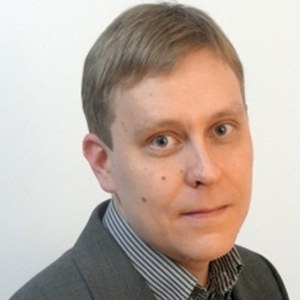
The research group conducts interdisciplinary research at the intersection of electromagnetism, RF/microwave electronics, and biomedical engineering, focusing specifically on hardware development, including methods to model and measure the developed devices and systems. The current group members have pioneered in the fields of wearable and implantable antennas, wireless power transfer for biomedical applications, and wireless backscattering communications in body-area networks. Their previous achievements include one of the first demonstrations of a battery-free wireless brain-machine interface, development of several miniaturized and multi-band brain implantable antennas (up to a recently published quad-band antenna), wireless technology for endoscopy, and several demonstrations of fully textile-based wearable antennas. The group has also contributed to the fundamental microwave theory by introducing new measurement techniques to characterize the developed hardware. The mentioned achievements can be viewed in the publications linked below.
https://ieeexplore.ieee.org/document/6964818
https://ieeexplore.ieee.org/document/9171503
https://ieeexplore.ieee.org/document/9743657
https://ieeexplore.ieee.org/document/9112677
https://www.researchgate.net/publication/379699092_Quad-Band_Meandered_Implantable_Planar_Inverted-F_Antenna_for_Wireless_Brain_Health_Monitoring
https://ieeexplore.ieee.org/document/5740348
We are looking for an early-career researcher with a genuine interest in building an international research profile relating to implantable and wearable antennas and wireless biomedical systems in general. The candidate is expected to be able to pursue new research ideas, both independently and as a member of a team, and being a good educator and a role-model for the more junior team members. Well-developed analytical and problem-solving skills as well success in publishing results in important scientific forums are essential requirements. Previous experience on antenna measurements and knowledge implantable or wearable antennas, metasurfaces, and wireless power transfer technologies are considered strong merits.
Keywords: Antennas, RF electronics, electromagnetism, electromagnetic modelling, microwave technology, biomedical engineering, body-centric wireless communications, flexible electronics, stretchable electronics, applied mathematics.
Contact the supervisor at toni.bjorninen [at] tuni.fi
Robert Bregovic, 3D-media group
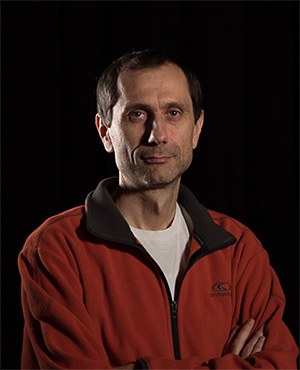
The group investigates methods for capture, processing and display of 3D visual data based on extensive knowledge about the human perception of depth and 3D visual cues. By employing advanced signal processing methods, it tackles specific problems related to the huge amount of data to be processed and the optimal way of visualization using state-of-the-art 3D displays.
We are looking for postgraduates interesteed in the area of 3D imaging (sensing, processing, and/or visualization), VR, and AR.
Keywords: plenoptic imaging, neuromorphic computing, light field, signal processing, image processing, AI, 3D
Contact the supervisor at robert.bergovic [at] tuni.fi
Oğuz 'Oz' Buruk – Gamification Group
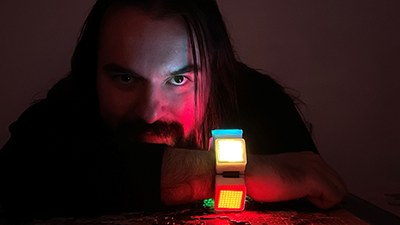
In Gamification Group Design, we work on gameful futures of any kind by employing design-oriented methods such as participatory design, co-speculative design, design fiction, first-person design approaches supported by other quantitative and qualitative methods such as surveys, controlled experiments or in-depth interviews. Our topics include, gameful posthuman futures, more-than-human design, play with biomaterials, playful forest interaction, body integrated gameful technologies, robotic companions, multimodal playful interaction in extended realities, playful fashion and cyborg interactions.
We are looking for potential Marie-Curie Fellows from diverse backgrounds that can contribute to the topics mentioned above or expand our research portfolio with their interests. Candidates should be able to adapt to design oriented research projects with a creative approach. Researchers who define themselves as creative technologists and who are interested in playful approaches might suit the best to our research team.
Keywords: bodily technologies, design research, research through design, game design, gamefulness, playfulness, posthuman, more-than-human, extended reality, human-robot interaction, extended realities, wearables, computational fashion
Contact the supervisor at oguz.buruk [at] tuni.fi
Tapio Elomaa, Algorithmic Machine Learning
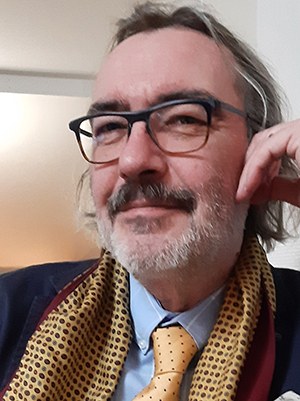
We are looking for mathematically talented students to analyze existing symbolic machine learning algorithms as well as to develop new methods through analytical techniques. There is room and need for symbolic methods even in this time dominated by neural networks.
Good knowledge in mathematics is required. Interest in the working ofmachine learning algorithms, not just their application.
Keywords: Machine learning, data mining, data structures and algorithms, artificial intelligence
Tapio Elomaa´s homepage
Contact the supervisor at tapio.elomaa [at] tuni.fi
Gerardo Iniguez Gonzalez, Tampere Complexity Lab
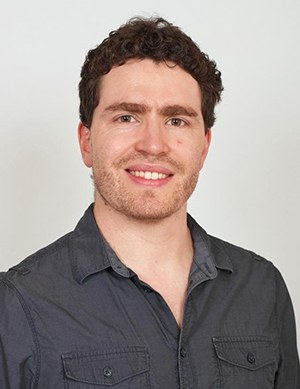
The Tampere Complexity Lab, part of the Computing Sciences Unit of the Faculty of Information Technology and Communication Sciences at Tampere University, aims at understanding the emergence of complexity in nature and society. We perform interdisciplinary research on the boundaries of physics, applied mathematics, sociology, and computer science, exploring the structure and dynamics of large-scale systems of interconnected entities that react to each other and the environment, especially in our technologically infused societies. We analyze the statistical properties of large empirical datasets of networked events off- and online, and emulate them via simple mechanistic mathematical models, to figure out how complex adaptive behavior at the macro level arises from a multitude of microscopic interactions.
We are looking for people with a PhD relevant to research in computational social science, network science, and complex systems in general (including, but not limited to, network science, physics, applied mathematics, computer science, and quantitative social sciences).
Competitive applicants will have outstanding mathematical, computational, and communication skills, a strong interest in interdisciplinary research, and an open-minded, collaborative spirit. Ideal candidates will have a promising record of high-level international publications and a demonstrated ability to conduct high-impact research in computational social science and network science. A strong research skillset, coming from fields like nonlinear dynamics, statistical physics, applied statistics, data science, and machine learning, will include large-scale statistical data analysis, mathematical modelling, and data/model fitting of complex networked phenomena. We expect the candidate to display genuine interdisciplinary interests, organizational and networking skills within the research community, and the initiative to conduct both collaborative and independent research. Language will be English at a high academic level in an international research environment, but Finnish is a plus.
Together, we will work on the mathematical and computational modelling of adaptive socio-technical networks leading to group emergence and ideological polarisation in online platforms and uncover mechanisms leading to emergent universalities in the large-scale behaviour of social networks and hierarchical complex systems.
Keywords Complex systems, network science, computational social science
Contact the supervisor at gerardo.iniguez [at] tuni.fi (gerardo[dot]iniguez[at]tuni[dot]fi)
Juho Hamari, Gamification Group
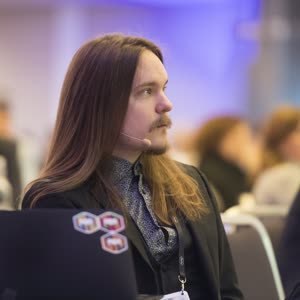
Gamification Group (GG) is a multidisciplinary research group that examines the gamefulness of technology, society, culture and economy. Gamification Group is affiliated with Faculty of Information Technology and Communication Sciences at Tampere University and lead research on gamification under Academy of Finland Strategic Profiling, Flagship and Centre of Excellence programs. The group is led by the Professor of Gamification, Dr. Juho Hamari.
Contact the supervisor at juho.hamari [at] tuni.fi
Eero Hyry, Topology and discrete mathematics
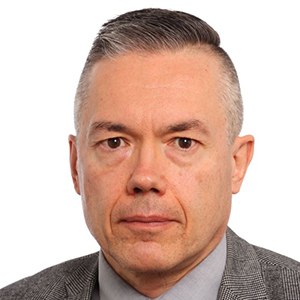
We are interested in the algebraic foundations of topological data-analysis. Persistent homology is the main tool of topological data analysis. While the theory of single parameter persistent homology is well understood, the general theory of persistent homology over arbitrary posets poses at the moment the biggest challenge of topological data analysis. Graded algebra and representation theory of posets have revealed to be powerful tools for both the theoretical understanding of persistent homology as well as for its practical use. However, the mathematical questions that arise in the general case are very different than the ones encountered classically, and call for new algebraic foundations. We are developing completely new fundamental commutative algebra and differential calculus type analysis of, modules over posets.
We are looking for a candidate with good prerequisites in commutative and homological algebra.
Keywords: persistent homology, persistence module
Topology and discrete mathematics
Contact the supervisor at eero.hyry [at] tuni.fi
Juho Kanniainen, Financial Computing and Data Analytics
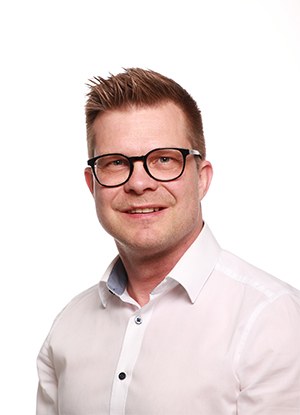
Our research primarily focuses on methodological and empirical research of machine learning, network science, statistical computing, and mathematical modeling, with a special emphasis on time-series modeling and information cascades. In finance, our main area of application, we utilize both modern data science techniques and more traditional statistical methods, working with rich data sets.
We have already had several MSCA-PF fellows who have had positive experiences with both their applications and the supervision they received.
We are seeking candidates with a solid background in data science (machine learning and/or complex networks), statistics, mathematics, and programming. While preliminary knowledge of quantitative finance is valued, it is not a requirement. Ideal candidates will have publications in well-regarded journals, with a preference for those in top-tier outlets in Computer Science/Statistics/Mathematics/Physics/Finance/Economics.
Keywords: Data Science, Machine Learning, Complex Networks, Network Science, Information Cascades, Quantitative Finance, Financial Markets, Statistics
Financial Computing and Data Analytics
Contact the supervisor at juho.kanniainen [at] tuni.fi
Petros Karamanakos, Power Electronic Systems
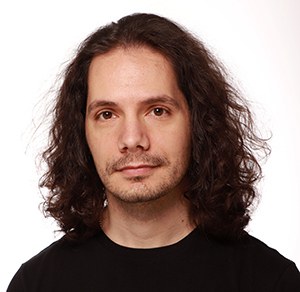
The main research focus of the group is on the development of software solutions, i.e., control and modulation schemes, that fully utilize the capability of the power electronic hardware by operating the system close to its physical limits. To this end, we design optimal control and modulation methods that that can operate power electronic systems in a cost- and energy-efficient manner and outperform conventional solutions. These methods are developed for and applied to a wide range of power electronics applications, such as variable speed drives, grid-connected converters, utility-scale power converters, low- to high-power systems, etc.
We are looking for a researcher with a strong background in power electronics (power converters, variable speed drive systems, power electronic devices). Moreover, experience in at least one of the following is highly appreciated: modulation methods (space vector modulation, optimized pulse patterns), control theory, learning-based methods, embedded programming, and microprocessors. Finally, interest in mathematics and/or optimization is very important. The researcher should also need to have an enquiring mind, enjoy problem solving, and be able to think independently while also being able to work in a team. A very good command of English, both in writing and in oral presentations, is also required.
Keywords: power electronics, optimal control, modulation, learning-based methods, power converters, variable speed drives
Contact the supervisor at petros.karamanakos [at] tuni.fi
Tarmo Lipping, Data Analytics and Optimization (DAO)
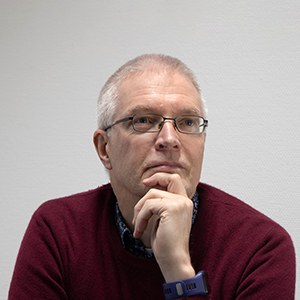
Our research group is working on data-analytics and machine learning applications mainly in the fields of health technology, industry-related data and agricultural data. Some examples of our active research projects include:
- MindFlow in the field of health technology
- Our Data Ecosystem for Added Value Grain in the field of agricultural data management
- Robocoast eDIH in the field of industrial data-analytics
We are looking for candidates with passion to solve practical problems by means of applying artificial intelligence and data mining tools and methods. The candidates are expected to have good skills in machine learning, time series analysis and/or data management (data lakes and related technologies).
Keywords: Data-analytics, Data management, Deep learning, Time series analysis, Artificial Intelligence
Data Analytics and Optimization (DAO)
Contact the supervisor at tarmo.lipping [at] tuni.fi
Simona Lohan, Signal processing for wireless positioning (TLTPOS)
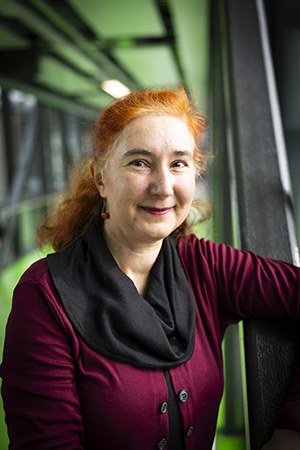
Our main research area focuses on seamless and robust wireless positioning and navigation solutions with a multitude of technologies (GNSS, LEO-PNT, cellular/5G/6G, BLE, WiFi, RFID, UWB, etc.). Our project portfolio spans over a broad area of applications: from designing novel LEO solutions for indoor positioning to offering low-cost GNSS solutions to complement accessible solutions to drinkable water in African region and investigating the relationships between social distances and loneliness among teenagers and elderly in our society. We have a broad expertise in algorithmic developments for wireless positioning on mobile devices, as well as in wireless channel modeling and interference mitigation, which are important building blocks of a robust positioning engine. We have access to a strong hardware infrastructure, including several professional GNSS receivers as well as a multi-channel Spectracom GNSS signal emulator.
We are looking for Postdoctoral researchers with interest in signal processing and physical layer design for wireless positioning (indoor, outdoor, seamless) and joint positioning, sensing, and communications solutions. Both data-driven/Machine Learning and model-driven solutions are relevant.
Keywords: wireless positioning; navigation; tracking; sensing; GNSS; LEO-PNT; 6G positioning
Other information: We have a wide expertise in leading and participating in MSCA networks and a very international team, which experienced first hand the research mobility aspects.
Signal processing for wireless positioning (TLTPOS)
Contact the supervisor at elena-simona.lohan [at] tuni.fi (elena-simona[dot]lohan[at]tuni[dot]fi)
Antonis Michalas, Network and Information Security Group (NISEC)
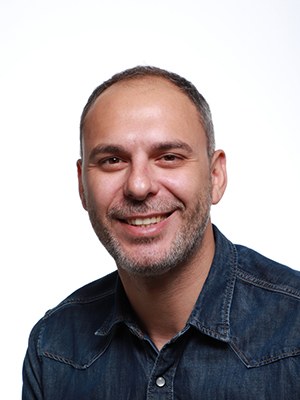
NISEC is conducting research in areas spanning from the theoretical foundations of cryptography to the design and implementation of leading-edge efficient and secure communication protocols.
We are looking for new ideas that will lead to high quality publications.
Keywords: Applied Cryptography, Privacy, Post-Quantum Cryptography, Blockchain, Privacy-Preserving Machine Learning, Provable Security
Contact the supervisor at antonios.michalas [at] tuni.fi
Frans Mäyrä, Game Research Lab
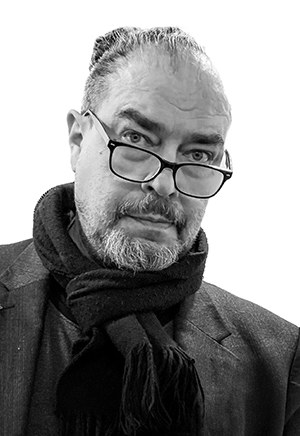
Dr. Frans Mäyrä is the Professor of Information Studies and Interactive Media, with specialization in digital culture and game studies in the Tampere University, Finland. He is the founder and co-director of Tampere University Game Research Lab. Frans Mäyrä has studied the relationship of culture and technology from the early nineties, with specialisation in the cultural analysis of technology, particularly on the ambiguous, conflicting and heterogeneous elements in this relationship. Professor Mäyrä has published on topics that range from information technologies, science fiction and fantasy to the demonic tradition, the concept of identity and role-playing games. He is currently heading the Centre of Excellence in Game Culture Studies, which has research foci in the meaning-making processes and cultural agency in games and play, considering the four interconnected main themes: Meaning and Form of Games; Creation and Production of Games; Players and Player Communities; and Societal Framing of Games.
We are looking for candidates who are capable of developing new, interesting research perspectives into contemporary culture and society by explorations of games and play as an art form, or by addressing the emergent practices of play and related theoretical and methodological developments in novel ways.
Keywords: game cultures, digital cultures, cultural theory, critical theory, agency, meaning-making, interpretation, cultural studies, game studies.
Contact the supervisor at frans.mayra [at] tuni.fi
Jyrki Nummenmaa, Tampere Natural Language Processing (NLP) Group
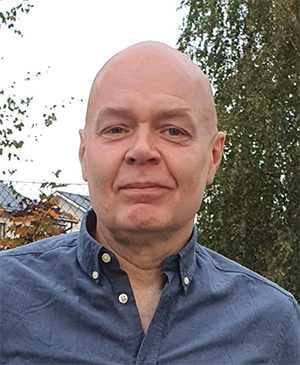
We do both rule-based and machine learning based research on natural language processing. You can study e.g. the publications of the members of the group, they can be found via the group web page. In case our group web page does not give sufficient information, please send email.
We are looking for interest to work on topics that our group works on, plus open mind to exchange ideas and benefit from our community.
Keywords: Natural language processing
Tampere Natural Language Processing (NLP) Group
Contact the supervisor at jyrki.nummenmaa [at] tuni.fi
Jari Nurmi, Positioning Hardware Group
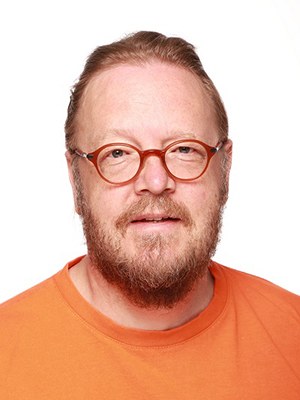
Research on Coarse-Grained Reconfigurable Arrays and embedded computing hardware, with applications in Software-Defined and Cognitive Radio, Positioning, and Machine Learning. Also GNSS receiver hardware, Approximate Computing, low-energy computing in general, wearables, eHealth applications.
We are looking for independent researchers with expertise and interests in at least one of the areas: 1) Low-energy computing architectures, 2) Software-defined/Cognitive Radio implementations, 3) Hardware acceleration of Machine Learning algorithms, 4) GNSS Receivers, 5) Applying wearables/sensors and Machine Learning for eHealth. Experience in supervising Master's level students is a plus.'
Jari Nurmi´s page
Contact the supervisor jari.nurmi [at] tuni.fi
Thomas Olsson, Technology x Social Interaction
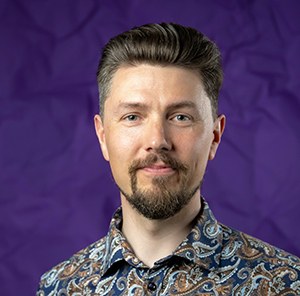
Prof. Thomas Olsson and the TSI research group specialize in socio-technical systems, sustainable digitalization, and computer-supported cooperative work—seeking to understand the multi-faceted and dynamic interconnections between modern information technology and social behaviour. The group approaches these topics primarily with qualitative empirical approaches, as well as with research through design where new digital artefacts are envisioned and devised with a critical voice and studied with respect to their experiential, social, and cultural effects. Since 2019, Olsson has investigated emergent AI technologies from the perspectives of social and environmental sustainability, which has also resulted in normative knowledge about how the development of AI systems ought to pursue organizational capability to forecast the risks and societal repercussions of AI.
We are looking for ambitious and interdisciplinary scholars who want to address wicked sociotechnical problems, such as sustainable digitalization or how to repair social media.
Keywords: user experience, social technology, sociotechnical systems, ICT for development, sustainable HCI, critical and speculative design
Technology x Social Interaction
Contact the supervisor at thomas.olsson [at] tuni.fi (thomas[dot]olsson[at]tuni[dot]fi).
Jaakko Peltonen, Statistical Machine Learning and Exploratory Data Analytics
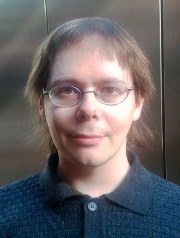
The SMiLE research group researches advanced statistical (probabilistic) machine learning methods for data analysis, especially methods for learning from multiple sources of data and methods for interactive analysis including nonlinear dimensionality reduction and visualization of high-dimensional data. Applications include natural language processing, intelligent information access, and information retrieval, in domains such as game culture analysis, ethical AI, social media, and more.
We are looking for candidates interested in developing novel methodologies for both automated and human-in-the-loop machine learning methods.
Keywords: machine learning, ethical ai, game culture research, natural language processing, information visualization, visual data analytics, information retrieval
Jaakko Peltonen´s homepage
Contact the supervisor at jaakko.peltonen [at] tuni.fi (jaakko[dot]peltonen[at]tuni[dot]fi)
Lassi Paunonen – Systems Theory Research Group

We develop mathematical theory for analysis and control of partial differential equations. The main focus is on deep and detailed analysis of challenging models arising from real-world applications. Mathematical systems theory studies the behaviour and properties of dynamical models that are described by ordinary and partial differential equations, as well as other models with dynamical behaviour. The main research interest of the group are the robust control of linear partial differential equations and infinite-dimensional systems, related research topics in functional analysis, as well as practical engineering applications of the theory.
We are looking for researchers with experience in functional analysis, dynamical systems, control theory, or analysis of partial differential equations, and who are interested in research in mathematical control theory. In addition, expertise in numerical methods for partial differential equations and Matlab skills can be valuable.
Keywords: mathematics, functional analysis, control theory, partial differential equations, distributed parameter systems, linear operators, operator semigroups.
Contact the supervisor at lassi.paunonen [at] tuni.fi
Archontis Politis, Audio and Speech Processing Research Group
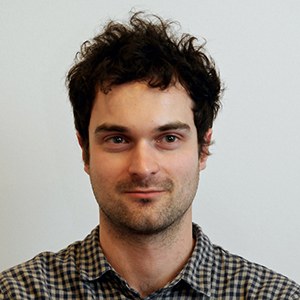
My research focuses on a) analysing and understanding surrounding scenes from audio signals, b) capturing, coding, and reproducing sound fields, c) modeling acoustical systems, and d) developing effective immersive audio rendering methods for 3D audio and audio in VR/AR/XR. The research relies in the intersection of multichannel microphone array processing, audio deep learning, acoustics, psychoacoustics and perceptual modeling. It has direct applications to immersive media production and delivery, immersive telecommunications, machine listening, acoustic monitoring, audio and acoustic engineering.
We are looking for candidates motivated for technological research with a love for audio, sound, or music. The candidates should have either some background in audio signal processing, or in deep learning for media (audio, video) processing. Familiarity with microphone array processing, spatial audio processing, or immersive audio rendering is a plus.
Keywords: spatial audio, immersive audio, machine listening, acoustic scene analysis, acoustic modeling, audio AI
Audio and Speech Processing Research Group
Contact the supervisor at archontis.politis [at] tuni.fi (archontis[dot]politis[at]tuni[dot]fi).
Paavo Rasilo, Electromechanics
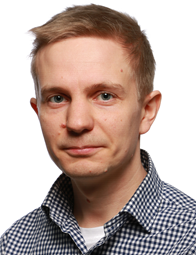
The research group of Electromechanics focuses on computational electromagnetics, magnetic material modeling and application of such models to analysis and design of different kinds of energy conversion devices. We work at the interface of electromagnetic theory, computational science, physics of magnetic materials and electrical engineering applications of practical importance. Our vision is to integrate advanced electromagnetic modeling tools together with practical design of electromagnetic and electromechanical energy conversion devices, such as rotating electrical machines, transformers, inductors and energy harvesters. Our ongoing research topics deal with high-frequency modeling of windings in electrical machines supplied by frequency converters, oil-spray cooling systems for electrical machines, characterization and modeling of ferrites and soft magnetic composites for power electronics applications as well as kinetic energy harvesting with electromagnetic and magnetostrictive methods.
We are looking for electrical or mechanical engineers or applied mathematicians interested in computational methods for electromagnetic, mechanical and thermal field problems, modeling and characterization of magnetic materials or design of electrical machines.
Keywords: electrical machines, magnetic materials, power losses, heat transfer, finite element method, computational fluid dynamics
Contact the supervisor at paavo.rasilo [at] tuni.fi (paavo[dot]rasilo[at]tuni[dot]fi).
Tarja Rautiainen Keskustalo, Sound & Media Research Group
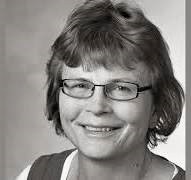
The research group focuses on exploring the significance of sound in a journalistic and media theoretical context. The approach represents the international field of sound studies, which examines sound in terms of its material, mediating, and meaning-making aspects. In today's technology-saturated environments, sound is integral to our lives through speaking and listening devices. Furthermore, sound plays a vital role in how we perceive and acquire information about the environment, particularly as the idea of text and textuality changes with the development of AI technologies. The research group also investigates sound's role in the sensory system and bodily agency, which are connected to various accessibility-related issues.
We are looking for candidates with a background in sound studies, sound design, media studies, journalism, media theory, or social sciences who are interested in doing research on sonic phenomena. The current research projects of the research team focus on studying the developments of podcast culture, re-examining the concept of listening (sonic literacy), for example, in relation to accessibility issues. Also, themes related to AI-sound and voice, sonification, and sound and immersion are welcome.
Contact the supervisor at tarja.rautiainen-keskustalo [at] tuni.fi
Bo Tan, Intelligent Communications and Sensing Lab (iCOS)
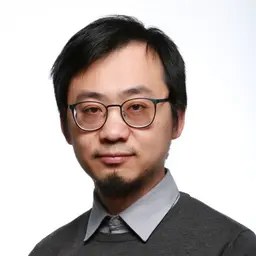
In our group, we conduct research on the following topics:
1, signal processing for radio sensing (radar) and wireless communications, particularly the array processing, detection and estimation, mmWave and THz signal processing and networking.
2, Machine learning for radio sensing and wireless communications, Particularly the physical layer processing and signal characterization for PHY security
3, Lightweight, distributed, and secured machine learning methods: the machine learning methods, a framework for large-scale embedded, distributed processors for various applications (healthcare, manufacturing, drone/robot swarming, etc.)
We are looking for candidates
1. with a PhD degree in EE, CS, mathematics, control or other related topics
2. who have passion, resilience, and flexibility with research challenges
3. who hold leading authorships of publications in IEEE Transactions, Letters, and/or flagship IEEE/ACM conferences
4. who have high proficiency in English for daily and academic communications
5. who have good interpersonal communication and time/task management skills
6. who are willing to participate in the department activities
Keywords: wireless communications, sensing, machine learning, neural network, decentralised, passionate
Contact the supervisor at bo.tan [at] tuni.fi
Markku Turunen, Pervasive Interaction Research Group & Tampere Accessibility Unit
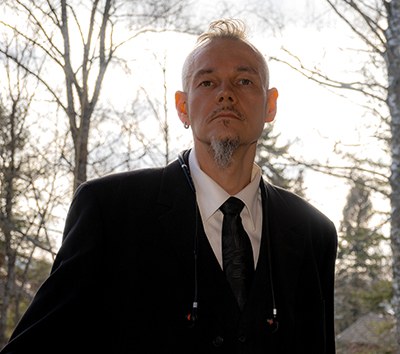
Markku Turunen is a professor of Interactive Technology at the Tampere University. Professor Turunen leads the "Pervasive Interaction Research Group" and the international "Sustainable Societies and Digitalisation" master's program. Recently, he established TACCU - "Tampere Accessibility Unit" with his colleagues. His research interests include pervasive computing, interactive systems, XR (VR, AR, MR), educational technology, industrial systems, health technology, sustainable interaction, social robotics, serious games, gameful interaction, exergames, chatbots, voice user interfaces, conversational systems, information visualization, human-robot interaction, accessibility: interactive digital services for people with special needs, such as visually impaired users, people with cognitive disabilities and people with motoric impairments, ICT4D & HCI4D (Information and Communications Technologies / Human-Computer Interaction for Development), among others.
We are looking for people who are interested in human-technology interaction in general and the following topics in particular: pervasive computing, interactive systems, XR (VR, AR, MR), educational technology, industrial systems, health technology, sustainable interaction, social robotics, serious games, gameful interaction, exergames, chatbots, voice user interfaces, conversational systems, information visualization, human-robot interaction, accessibility: interactive digital services for people with special needs, such as visually impaired users, people with cognitive disabilities and people with motoric impairments.
Keywords: Pervasive computing, interactive systems, XR (VR, AR, MR), educational technology, industrial systems, health technology, sustainable interaction, social robotics, serious games, gameful interaction, exergames, chatbots, voice user interfaces, conversational systems, information visualization, human-robot interaction, accessibility: interactive digital services for people with special needs, such as visually impaired users, people with cognitive disabilities and people with motoric impairments
Pervasive Interaction Research Group
Tampere Accessibility Unit
Contact the supervisor at markku.turunen [at] tuni.fi (markku[dot]turunen[at]tuni[dot]fi).
Vishnu Unnikrishnan, SoC Hub, Microelectronic Circuits and Systems group
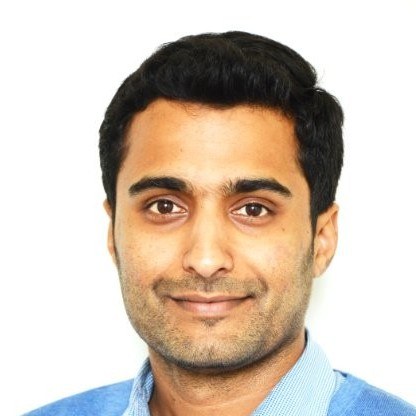
The group focuses on RF/mixed-signal circuits and systems research to develop enabling hardware architectures, circuit techniques, and signal processing algorithms for 6G radio and high-speed wireline transceivers. Other areas of interest include high-speed/low-power dataconverters, biomedical sensing, brain-computer interface etc. We also have interest in developing concepts for efficient low-energy digital computing, mixed-signal AI accelerators and neuromorphic computing.
We look for ambitious doctoral candidates in their later years or those with a doctoral degree who is motivated to apply for the prestigious MSCA-PF grants. The suitable research background could be in broad area of signal processing for communication and biomedical sensing, integrated circuit design, hardware design etc. If unsure, please reach out for a discussion.
Keywords: circuit, device, signal processing, dsp, mixed-signal, RF
VIshnu Unnikrishnan´s profile page
SoC Hub, Microelectronic Circuits and Systems group
Contact the supervisor at vishnu.unnikrishnan [at] tuni.fi (vishnu[dot]unnikrishnan[at]tuni[dot]fi).
Tuomas Virtanen, Audio Research Group
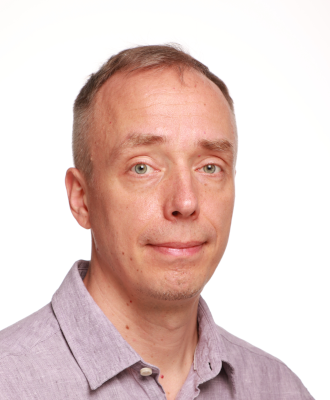
Audio Research Group focuses on the development of signal processing and machine learning algorithms for the content analysis of sounds and audio processing, including topics such as audio classification, sound source separation, sound source localization, and several related areas. The group has produced several state-of-the-art methods in the areas of computational acoustic scene analysis and audio processing. The group has also produced several publicly available datasets to support research on the above areas.
Potential candidates should have a strong background in some areas related to the research of the group, such as audio signal processing, machine learning, or acoustics.
Keywords: audio signal processing, machine learning, acoustics
Contact the supervisor at tuomas.virtanen [at] tuni.fi (tuomas[dot]virtanen[at]tuni[dot]fi)
Kaisa Väänänen, Human-Centered Technology
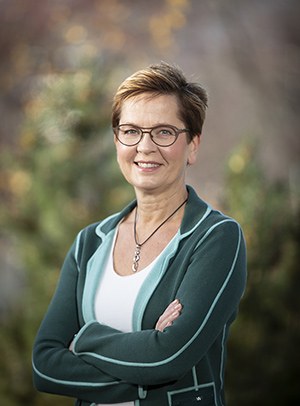
My research interests cover, but are not limited to:
* Human-Centered Artificial Intelligence (HCAI), especially user experience of AI solutions and methods for AI application design
* Design research on HCI for societal purposes, both for social and environmental sustainability
* Contextual studies of AI applications in everyday life, for example tangible AI interactions in smart urban environments
My research team, called Human-Centered Technology, studies also social robots and more broadly, HCI for sustainability. We mostly conduct qualitative design research and very often in real contexts of use. Mixed methods are also in our “toolbox”. Very often our research endeavours are multidisciplinary.
Please visit my web site for more details: https://research.tuni.fi/kaisa-vaananen/
Please contact me to discuss, let’s find out if you could be a good match with my team!
We are looking for a skilled and enthusiastic young post-doc researcher who is interested in the topics outlined above, or other topics that can contribute to human-centered technology design and research. Your background may be in HCI, design, engineering, or other relevant discipline, as long as you are knowledgeable of methods of human-centered approach to study technology. You need to be fluent in writing and presenting in English, and proactive in presenting your ideas. International experience (e.g. previous study or research visits) are a plus.
Keywords: Human-Technology Interaction, Human-Centered AI, User Experience, Human-Centered Design, Interaction Design Research
Human-Centered Technology (IHTE)
Tampere University Computer-Human Interaction Research Centre (TAUCHI)





